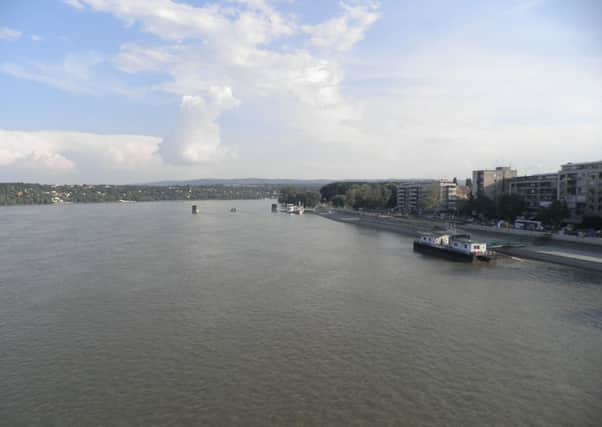Aftermath of NATO bombing of European city centres on a night when 18 innocent people died


They targeted a range of buildings including the headquarters of the Yugoslav Army on Kneza Milosa in central Belgrade.
A visitor from Londonderry recently filmed what he described as “the frightening proximity of the building to a mixed use residential block (see video) where ordinary Serbs can be seen going about their business and children playing”.
Advertisement
Hide AdAdvertisement
Hide AdAlthough, no casualties were reported in that strike, four people - including three journalists, were killed that night by NATO - when acting on CIA intelligence they bombed the Chinese Embassy.


NATO wrongly believed it had been the Yugoslavian military’s procurement headquarters. On the same night fourteen civilians were also killed in Nis, when Dutch bombers aimed cluster bombs at an airfield. They missed their target and the cluster bombs landed in the city centre.
The day before Operation Allied Force - spearheaded by the US and the UK - was launched against Slobodan Milosevic’s Federal Republic of Yugoslavia on March 24, 1999, Tony Blair told Westminster - at that time John Hume and William Ross were still MPs - air strikes were the only way to stop a humanitarian disaster in Kosovo.
As the Prime Minsiter spoke US Special Envoy to the Balkans Richard Holbrooke was in Belgrade delivering an ultimatum to Mr Milosevic.
Advertisement
Hide AdAdvertisement
Hide AdMr Blair told Parliament - which mandated the bombing campaign - that NATO was taking the action to “avert what would otherwise be a humanitarian disaster in Kosovo.”
He said: “Let me give the House an indication of the scale of what is happening. A quarter of a million Kosovars—more than 10 per cent of the population—are now homeless as a result of repression by Serb forces; 65,000 people have been forced from their homes in the past month, and no fewer than 25,000 in the four days since the peace talks broke down; and only yesterday, 5,000 people in the Srbica area were forcibly evicted from their villages.”
Critics of Mr Blair and the then US President Bill Clinton believe they are collectively responsible, with the heads of other NATO member states of the time, for the deaths of over 500 Serb civilians.
According to Human Rights Watch and Amnesty International approximately 500 civilians were killed and 900 injured during the course of the conflict in Serbia.
Advertisement
Hide AdAdvertisement
Hide AdThe deaths occurred largely when NATO bombed heavily populated urban areas.
Hospitals, TV headquarters, Embassies, bridges and refugee columns were all amongst those hit by NATO bombs.
Amnesty recently called for the perpetrators of the TV HQ bombing to be brought to justice.
Shortly after the bombings began, on April 1, 1999, NATO killed one person when it blew up the 200 year old Old Petrovaradin Bridge - a cultural monument - in Novi Sad.
Advertisement
Hide AdAdvertisement
Hide AdThe bombing - as Mr Blair explained - was justified as a necessary intervention to protect the Kosovan Albanians from repression by Mr Milosevic’s forces as well as paramilitary groups.
The Belgrade based Humanitarian Law Centre (HLC) recently reported that in Kosovo itself during the course of the Kosovan War 13,321 individuals were killed, wounded, or went missing between January 1998, until the arrival of the international peacekeeping mission in December 2000.
Some 8,000-10,000 of those on the list of war victims were ethnic Albanians, while some 2,000–2,500 were Serbs, Roma, Bosnians, and ethnic Albanians who were loyal to Serbia.
When Mr Blair declared war on Yugoslavia a few prescient MPs mentioned how they would be sanctioning the deaths of civilians.
Advertisement
Hide AdAdvertisement
Hide AdThe former Yorkshire Labour MP Alice Mahon asked: “Does the Prime Minister accept that many of us genuinely believe that bombing a sovereign state could cause more, not fewer, civilian casualties, and could destabilise the whole of south-eastern Europe because the Serbs will almost certainly fight to defend their homeland?”
Mr Blair replied: “We have done everything that we possibly could to make dialogue work, but we are left with the realisation that dialogue has not worked. Then what do we do? Do we simply allow the repression to continue, or do we act?”
Former Liberal Democrat Leader Walter Menzies Campbell also mentioned the likelihood of killing innocent people.
Mr Menzies Campbell said: “This a bad business which could turn out to be a bloody one as well. None of us should underestimate the risk of casualties on either side.
Advertisement
Hide AdAdvertisement
Hide Ad“If air strikes prove to be necessary, those who advocate them and those who support them—as I do—might have to live with some extremely painful consequences.”
Mr Blair replied: “I agree entirely with what the right hon. and learned Gentleman said about the painful consequences of this action.
“As the leader of his party, the right hon. Member for Yeovil (Mr. Ashdown), said yesterday, there are painful consequences involved in taking this action, but the consequences of not taking it are even more painful. That is the right and honest way to put it to people.”